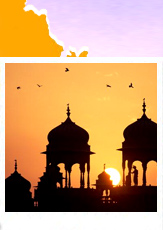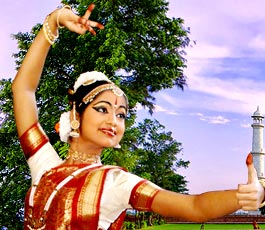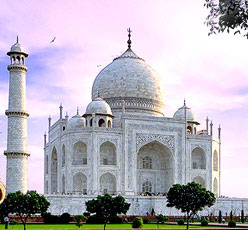 Ladakhis are known for their cheerful disposition and most of their festivals fall in winters, which serve as an excuse for social and convivial gatherings. In summers, archery competitions and native version of polo are quite common and especially among the Buddhists, these competitions are often a local ball where folk songs and dances add to the jovial atmosphere and 'Chang', the local barley beer is amply used. The rich collection of oral literature of the region is full of occasion-special songs and poems and includes the localized versions of the Tibetan epic, 'Kesar Saga'.
Ladakhis are known for their cheerful disposition and most of their festivals fall in winters, which serve as an excuse for social and convivial gatherings. In summers, archery competitions and native version of polo are quite common and especially among the Buddhists, these competitions are often a local ball where folk songs and dances add to the jovial atmosphere and 'Chang', the local barley beer is amply used. The rich collection of oral literature of the region is full of occasion-special songs and poems and includes the localized versions of the Tibetan epic, 'Kesar Saga'.Traditions & Rituals
The folk musical instruments 'Surna' (oboe) and 'Daman' (drum) accompany the ceremonies and public events. These instruments originally introduced into the region by Muslims hailing from Baltistan but are now exclusively played by 'Mons' (Buddhist musicians). A newly born child gets a warm welcome full of festivity and merriment, with functions on his 15th day in the world, after one month of the birth of a child and his/her first birthday. The family invites all the friends, relatives and neighbors and serves them with tea, 'Tsampa' (a local delicacy), butter and sugar.
Weddings in Ladakh are full of music, dance, merriment and feasting. The boys are generally promised or married at an age of 16 and girls by the age of 12. The relatives of the groom take 'Chang', tea, butter and other presents along with the ring to the bride's home. If the gifts are accepted then marriage takes place a few months later. On the first day, a grand feast ensues at the bride's house and on the second day, at the groom's place. After marriage, bride lives with her husband and her parents offer clothes, animals and land to the couple as dowry or 'Raqtqaq', depending on their economic status.
The males are the head of the family and the eldest son has the right to property of his father, which automatically passes to the next brother after him. In case, there are no sons in the family, the father brings in husband of the eldest daughter and property gets transferred in the daughter's name and passes on to her first son, after her.
Lamas as Oracles
Lamas are believed to be the messengers between the physical and the spiritual world and often act as astrologers and oracles predicting the auspicious time for starting any major enterprise. However, the monk-oracles of Matho Gompa are the most popular ones. It is very interesting to witness the feats performed hby these monk-oracles. Two monks are chosen to act as oracles in every three years by a traditional procedure and they have to undergo rigorous routine of prayer and fasting (and perhaps training) to purify themselves for the cause. When they finish, deity possess their body at the opportune time ans the feats, which they perform feats that can awe anyone including cutting themselves with knives without even wincing and sprinting along the gompa's (monastery's) topmost parapet as if they are made of rubber. Whenever possessed, they are believed to answer only the truth regarding individual and public welfare, though, the deity may also react with frenzied anger to those who are skeptical and ask questions only to test the deity.









